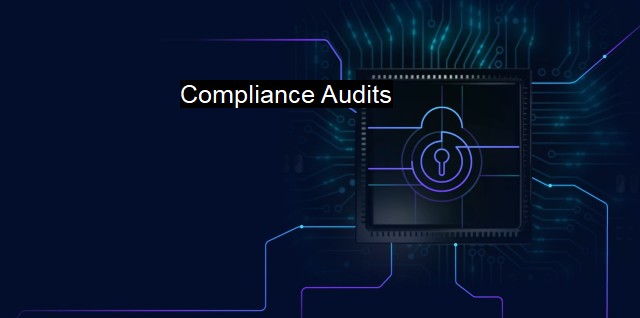What are Compliance Audits?
Ensuring Compliance in Cybersecurity: The Importance of Compliance Audits for Data Security Programs
Compliance audits are a critical procedure that checks whether an organization's internal practices, operations, and activities align with prescribed regulations, standards, guidelines, or stipulations. Conducting regular compliance audits is crucial in numerous fields, particularly within the realm of cybersecurity and antivirus. Here, the audits are a key aspect to ensure that the company’s protocol and processes deliver adequate security controls to keep data and network assets safe.Compliance audits systematically evaluate related aspects such as software, hardware, networks, applications, or even personnel, on adherence to rigorous cybersecurity laws, policies and best practice guidelines related to protecting data, applications, and networks.
Society’s growing reliance on digital transactions, storage, and communications has inevitably increased threats to information security. Cyber attackers develop sophisticated ways to exploit vulnerabilities and access sensitive data illegally. High-profile breaches have even resulted in severe damage to the company’s reputation and heavy losses. Against this backdrop, regulatory authorities introduced various cybersecurity compliance standards and regulations to ensure data security.
Internal and external auditors, or auditing firms, perform these specialized compliance audits. The auditor aims at identifying the strength, accuracy, performance or gaps in a company's adherence to regulatory mandates or internal policies related to cybersecurity. The results could help adjust current policies or integrate advanced and better security solutions.
Setting the groundwork for a compliance audit is the risk assessment segment where all potential risks to a company’s cybersecurity are probed. This illustrates which areas of cybersecurity are most vulnerable across applications, devices, networks, data transfer and storage modes, and point out where more focused attention – and corrective actions – is needed.
Compliance audits centered on cybersecurity and antivirus may revolve around a multitude of legal and policy frameworks issued by various regulatory bodies or internally by the organization. Government laws, industry standards, such as GDPR (General Data Protection Regulation) by the European Union, or HIPAA (Health Insurance Portability and Accountability Act) in the US are commonly assessed. Standards such as the PCI DSS for businesses that handle credit card information, or the ISO 27001 standard for information security management also form an important part of most audits.
Unfortunately, being compliant with these standards doesn't completely eradicate the likelihood of a data breach or cyber attack. Compliance should be viewed as a minimum measure of security, not the absolute. Managing the risk factor to prevent the theft of sensitive data goes beyond just compliance, and it involves continuous monitoring, threat exploration, frequent updates, and constant employee training about cybersecurity.
Although audits can be stressful or perceived as unwelcomed inspection to some personnel, it may be beneficial to look at auditing as a safety net that can uncover lapses in security controls or scrutinize privacy policies for improvements, plugging vulnerabilities before calamity strikes. Mistakenly overlooked details may also be nipped in the bud and protocols upgraded.
Compliance audits within the field of cybersecurity and antivirus have become a standard practice. They establish a structure that helps organizations in enhancing and maintaining the holistic integrity of their information security. Despite being challenging, these audits curtail vulnerabilities and upraise the level after a thorough analysis, helping a company outwit cyber threats. In our digitized world where cyber threats multiply by the minute, compliance audits are a necessary checkmate to guard against potential pitfalls and ensure the best security operations for a defense against cyber threats.

Compliance Audits FAQs
What is a compliance audit in the context of cybersecurity and antivirus?
A compliance audit is an assessment carried out to ensure that an organization meets the required standards and guidelines set by regulatory authorities regarding cybersecurity and antivirus policies. It checks whether the organization adheres to these standards and guidelines in its day-to-day operations.What standards and guidelines are checked during a cybersecurity and antivirus compliance audit?
A cybersecurity and antivirus compliance audit checks whether an organization complies with the industry-standard frameworks, laws, and regulations. These may include the General Data Protection Regulation (GDPR), the Payment Card Industry Data Security Standard (PCI DSS), the Health Insurance Portability and Accountability Act (HIPAA), and the National Institute of Standards and Technology (NIST) Special Publication 800-53, among others.Why is a compliance audit important in the context of cybersecurity and antivirus?
A compliance audit ensures that an organization's cybersecurity and antivirus policies are effective and meet the required standards. It also helps to identify any gaps or weaknesses in these policies that could be exploited by attackers. By undergoing regular compliance audits, an organization can improve its cybersecurity posture, mitigate risks, and ensure the safety of its data and systems.Who performs cybersecurity and antivirus compliance audits?
Certified auditors who specialize in cybersecurity and antivirus policies perform compliance audits. These auditors have the necessary expertise and experience to assess an organization's compliance with the required standards and guidelines. They also provide recommendations and guidance on how to improve an organization's cybersecurity and antivirus policies.| | A | | | B | | | C | | | D | | | E | | | F | | | G | | | H | | | I | | | J | | | K | | | L | | | M | |
| | N | | | O | | | P | | | Q | | | R | | | S | | | T | | | U | | | V | | | W | | | X | | | Y | | | Z | |
| | 1 | | | 2 | | | 3 | | | 4 | | | 7 | | | 8 | | |||||||